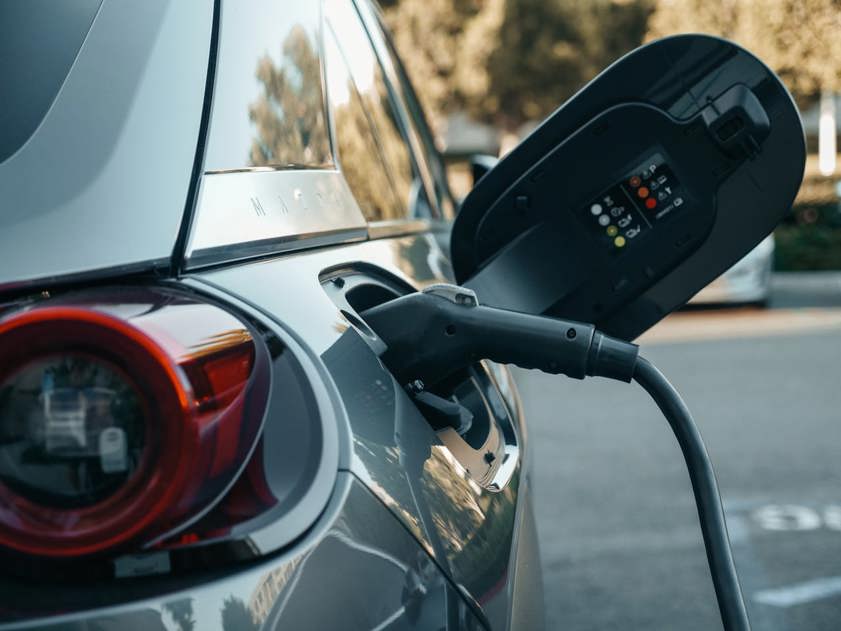
Electric cars are the most seismic shift in the transportation industry since, well… the car itself. With global sales surging and governments across the globe committing to EVs, the move away from petrol and diesel is getting ever closer.
In the UK, the sale of new petrol and diesel cars will be banned by 2030, and by 2035, all new cars will have to be 100% emission-free.
This poses a serious challenge for the industry, but it emphasises one thing: electric vehicles are the future.
In this blog, we’ll look at why EVs are leading the future of transportation, the key factors driving the EV revolution, and what the future holds for the average driver. Let’s get into it:
Put simply, electric cars are powered by electricity rather than petrol or diesel. They use electric motors or fuel cells to drive the wheels, offering a quieter, cleaner alternative to traditional engines. There's a few different types, so here's a breakdown:
- All-electric vehicles - Run purely on battery power and need to be charged using an external power source.
- Hybrid vehicles - Use a petrol or diesel engine alongside an electric motor, which charges itself as you drive.
- Plug-in hybrids - Combines an engine with a larger battery that can be plugged in to charge for short all-electric trips.
- Fuel-cell vehicles - Generate electricity using hydrogen and emit only water vapour, no plug-in is required.
Want to dig deeper into electric cars? Check out our electric and hybrid leasing guides.
Pretty much everyone agrees that the move to electric vehicles is a necessity. It’s not just innovation for innovations sake, it’s being driven by a powerful mix of environmental urgency, political pressure, and changing driver behaviour:
- Cleaner air - EVs don’t produce any tailpipe emissions, meaning they contribute to us cutting down on harmful pollutants. In cities, where air quality can be poor, more EVs on the road means fewer health problems caused by traffic pollution.
- Legislation - The UK plans to ban the sale of new petrol and diesel cars by 2035, and similar deadlines are being set across Europe.
- Manufacturers going all-in - Big-name brands are no longer treating EVs as a side project. Companies like Ford, Volkswagen, and Volvo have committed a lot of funds to electrification.
- Changing driver behaviour - Drivers aren't the same as what they were 10 years ago. With people driving less and the increase in EV charging infrastructure, people are re-evaluating what they actually need from a vehicle.
“We’re seeing more customers turn to electric leasing because it offers peace of mind and emission-free driving during a time of rapid change.”

Driving an EV is different, and if you’ve ever had the pleasure of driving one, you’ll know just how good they are. Yes, you might not get the roar of a traditional engine, but EVs make up for this in more ways than one:
- Instant acceleration - EVs deliver torque straight away, making acceleration smoother and quicker.
- Silent drive - The absence of a combustion engine makes for a serene and calm experience behind the wheel.
- Lower maintenance - An EV powertrain has fewer moving parts than a traditional engine. That means fewer things can go wrong, reducing the chances of maintenance issues.
- Regenerative braking - Regenerative braking is fantastic. It captures energy every time you slow down, helping to improve EV range and reduce brake wear.
For more information, check out some of our other blogs on EVs, such as One Pedal Driving Explained.
Did you know:
EVs accounted for 19% of all new cars registered in the UK in 2024 (Zap-Map)
Around a fifth of the world’s CO2 emissions come from transport, and road vehicles account for nearly three-quarters of that. So, if we’re talking about tackling climate change, we need cleaner ways to get around. This is where EVs shine.
At a basic level, they produce zero tailpipe emissions. Nada. That alone makes them a big win for public health and the planet. If they became the norm, there would be a seismic reduction in our carbon footprint.
However, EVs still need to be charged, and the sustainability of the electric grid matters. Powering a car with energy from coal obviously isn’t as clean as using wind or solar power, which, you’ll be happy to hear, are increasing in popularity.
There’s also the question of battery production. Manufacturing lithium-ion batteries can be energy-intensive, with studies estimating that 46% of EV carbon emissions come from the production process (iNS).
Still, EVs produce significantly fewer emissions over their lifetime than petrol or diesel cars and are definitely here to stay.

As I’m sure you’re aware, EVs aren’t going anywhere. As technology advances and public adoption grows, we’re on the cusp of major breakthroughs that will shape the future of driving.
It’s an exciting time to be a petrol (or electric?) head. There are new technologies popping up all over the place, and while some of them are undoubtedly bonkers, a select few will go a long way in shaping the future of electric cars:
- Autonomous EVs - Electric powertrains are perfect for self-driving technology. With smoother mechanics and advanced software, EVs will lead the charge in autonomous driving.
- Second-hand EVs - As more EVs hit the road and technology improves, the used electric car market is growing. This is great for affordability and sustainability and also opens the door for more flexible leasing options.
- Global market shifts - The world is accelerating its EV transition, and it’s hard to deny just how far China is pulling ahead. They are leading the way in terms of production, infrastructure, and sales.
- Solid-state batteries - The next generation of batteries promises faster charging, longer range, and great safety (sounds great!). If and when these hit mainstream production, EVs will become even more attractive.
Whether you’re motivated by cost, climate, or convenience, the electric age is here and now. With leasing, you don’t need to worry about battery degradation, resale value, or long-term ownership, just choose an electric model and drive.
You can also enjoy the latest technology, benefit from lower running costs, and future-proof your driving habits.
The electric revolution isn’t coming, it’s already here. With smarter tech and a better driving experience, the shift to electric vehicles is rewriting the future of transport.
Thinking about going electric? Explore our best electric car lease deals and drive the future today.
Originally posted: 24th October 2023
Last updated: 4th June 2025

